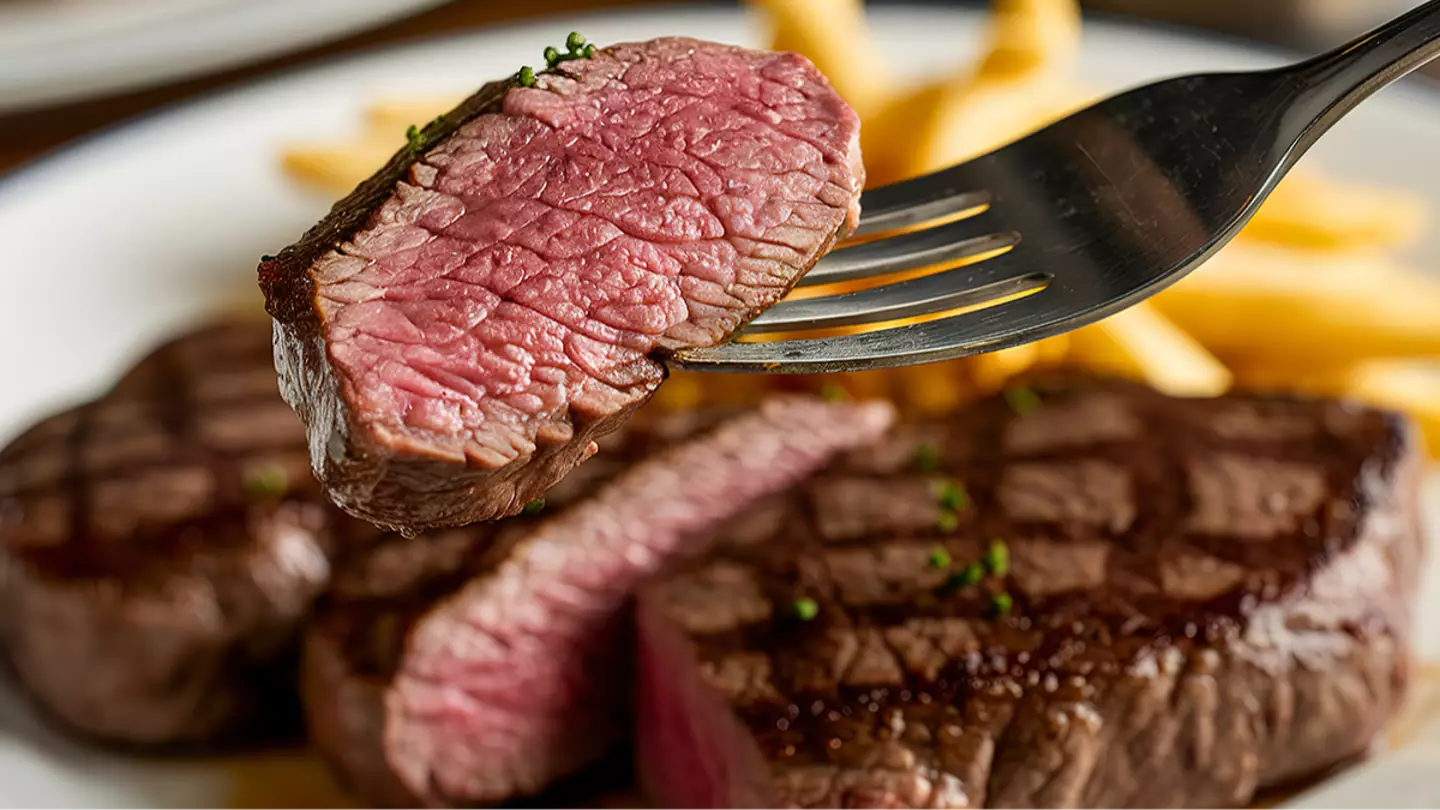
Experts have explained why we're able to eat rare steak but not undercooked chicken.
If you've ever wondered why humans can chomp down on a medium rare ribeye, but poultry has to be cooked all the way through, there's an interesting reason why.
Everyone has their own preference when it comes to beef - while some like it to be pink and rare, others feel a little queasy at anything but well-done.
But with chicken, the meat must be cooked through until it's white and juices run clear.
Advert
So why is it that the meats are cooked and eaten differently?
Well, it's all to do with the cut. Beef steaks are single cuts of muscle, so effectively any bacteria that the meat is exposed to is limited to the outside of the fillet, which is destroyed during the cooking process.

Chicken is different, with the Centers for Disease Control and Prevention explaining: “When cooked, chicken can be a nutritious choice, but raw chicken can be contaminated with Campylobacter, Salmonella, or Clostridium perfringens germs.”
Chicken is a less dense meat, meaning that the bacteria present on the outside of the cut can easily reach the inside.
Cooking it through eliminates the bacteria, making it safe to eat.

Not cooking chicken thoroughly can put you at risk of food poisoning.
The CDC estimates that Salmonella causes more foodborne illnesses than any other bacteria.
They explain: "If you eat undercooked chicken, you can get a foodborne illness, also called food poisoning. You can also get sick if you eat other foods or beverages that are contaminated by raw chicken or its juices.
"CDC estimates that every year in the United States about 1 million people get sick from eating contaminated poultry.
"Chicken is a major source of these illnesses. In fact, about 1 in every 25 packages of chicken at the grocery store are contaminated with Salmonella."

The CDC recommend storing your chicken on the bottom shelf of the fridge and washing your hands for at least 20 seconds after handling.
Signs and symptoms of salmonella infection include:
- Diarrhea
- Stomach cramps
- Fever
- Nausea
- Vomiting
- Chills
- Headache
- Blood in the stool
Symptoms generally last a few days to a week but it can take longer before normal stool habits resume.
If the illness lasts more than a few days, is associated with high fever or bloody stools or appears to be causing dehydration, it's important to seek medical advice.
Topics: Food and Drink, Health, Science
